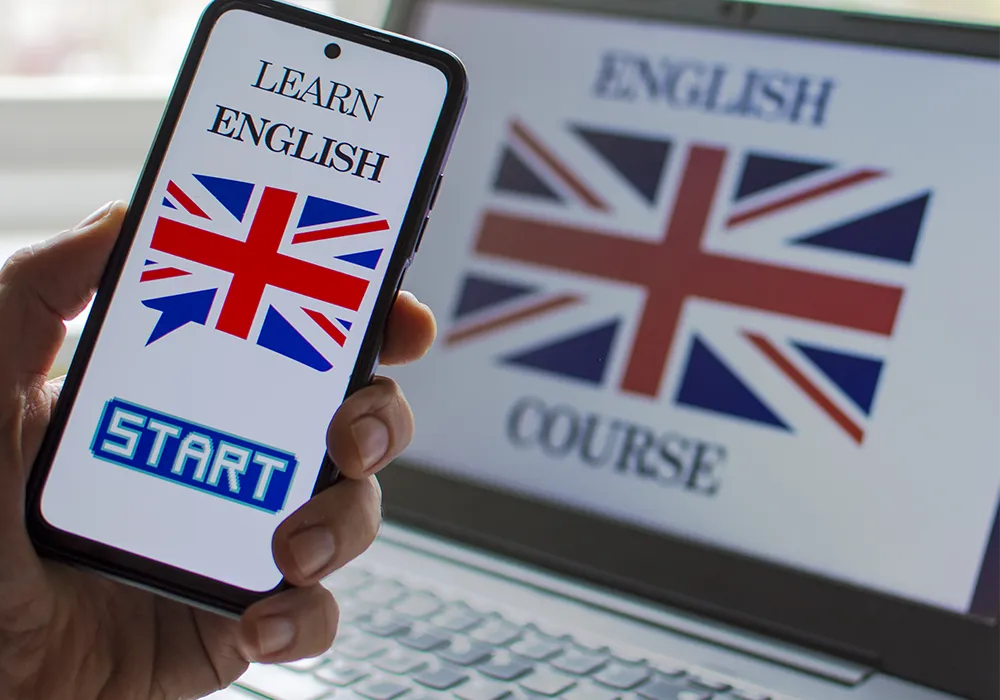Exploring Various Ways to Learn English to Maximize Your Language Skills and Improve Fluency
Discover the many ways to learn English, from in-person and online courses to language immersion and learning through media and entertainment. Find the method that best suits your needs and goals.
In-person English Courses
In-person English courses are one of the most traditional and effective methods for learning the language. They provide a structured learning environment that often includes regular classes, hands-on activities, and direct interaction with instructors and peers. These courses are available at language schools, universities, and specialized training centers.
1. Structured Methodology:
In-person courses typically follow a well-defined curriculum, covering grammar, vocabulary, speaking, and listening comprehension. This structured approach ensures that all language aspects are covered in a balanced way.
2. Social Interaction:
Classroom settings allow for direct interaction with other students and the teacher, which can enhance communication skills and foster collaborative learning. Group speaking practice is a crucial component of developing fluency.
3. Immediate Feedback:
With an instructor present, you receive immediate feedback on your performance, allowing for quick corrections and clarification of doubts. This accelerates learning and helps prevent the development of bad habits.
4. Practical Activities:
Many in-person courses include practical activities such as debates, role-playing real-life situations, and educational games, which help apply what you’ve learned in an engaging way.
While in-person courses are highly effective, they often require a significant investment of time and money, with less flexibility compared to other learning options.
Online Courses and Language Apps
Online courses and language apps have gained immense popularity, offering a convenient and flexible way to learn English. These platforms allow students to study at their own pace, from anywhere with internet access.
1. Flexibility and Access:
Online courses and apps provide the flexibility to study at times that suit your personal schedule. Materials and exercises are accessible anytime, making them ideal for those with busy lives.
2. Resource Diversity:
Platforms like Duolingo, Babbel, and Rosetta Stone offer a range of interactive lessons, videos, and quizzes that make learning dynamic and engaging.
3. Customization and Progression:
Many apps and online courses let you personalize your learning experience based on your skills and needs, adjusting difficulty levels and focusing on specific areas of interest.
4. Communities and Interaction:
Some platforms feature learning communities where users can practice speaking, ask questions, and share experiences with others around the world.
Although these tools offer convenience and affordability, they may lack the direct interaction with instructors and peers that fosters faster learning. Self-discipline is also key to maintaining consistent progress.
Language Immersion
Language immersion is one of the most effective methods for learning English, by surrounding yourself with the language in everyday life. This might involve traveling to English-speaking countries, participating in exchange programs, or living in environments where English is the primary language.
1. Cultural Experience:
Immersion in an English-speaking environment allows for natural and contextual learning. Daily interactions with native speakers can rapidly accelerate your language acquisition.
2. Continuous Practice:
Immersion provides constant, real-life practice, improving fluency and listening comprehension through interactions in stores, restaurants, social events, and local media.
3. Quick Adaptation:
This approach helps you adapt quickly to using English in various contexts, promoting familiarity with idiomatic expressions and slang.
4. Skill Development:
Intensive practice in real-world situations enhances your speaking, listening, and cultural understanding, leading to deeper language mastery.
While immersion is highly effective, it requires significant time and financial investment, which may not be feasible for everyone.
Learning through Media and Entertainment
Learning English through media and entertainment is a fun and effective way to improve your language skills. Watching films, series, and listening to music or podcasts in English can enhance your listening comprehension and expand your vocabulary.
1. Language Exposure:
Media and entertainment provide constant exposure to spoken and written English, helping you familiarize yourself with different accents and speaking styles.
2. Contextualization:
Watching films and series allows you to understand English in various real-world contexts, helping you grasp idioms and slang often missing from traditional study materials.
3. Active Monitoring:
Using subtitles in English or your native language can aid understanding. Repeating sentences and following dialogue helps improve pronunciation and fluency.
4. Variety of Contents:
The wide range of genres and topics available in English media keeps learning interesting and engaging, allowing you to choose content that aligns with your interests.
While this approach is great for supplementing learning, it may not provide the structured practice needed to develop advanced writing and speaking skills. Listening comprehension can also be challenging without a solid foundation in grammar and vocabulary.
Private Classes and Tutoring
Private lessons and tutoring offer a highly personalized approach to learning English, allowing students to receive individualized attention tailored to their specific needs.
1. Personalized Teaching:
A tutor can customize lessons based on the student’s level and goals, focusing on specific areas like conversation, grammar, or exam preparation.
2. Schedule Flexibility:
Private lessons are often scheduled at the student’s convenience, offering flexibility for those with varying schedules.
3. Immediate Feedback:
Direct interaction with a tutor provides instant feedback, allowing for quicker corrections and faster skill improvement.
4. Diverse Methodologies:
Tutors can use a variety of methodologies and materials to make classes more effective and engaging, adapting to the student's learning style.
While private lessons offer numerous benefits, they can be more costly and require a greater financial commitment. Additionally, the success of this method depends largely on the quality and experience of the tutor.




